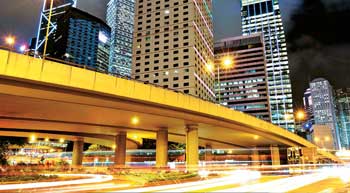Capital outlay for the infrastructure sector up to Rs 5.97 lakh crore in FY2018v19 (up 20.8 per cent over FY2018), with major increase for segments like railways, telecommunication and affordable housing.
FlashNews:
Air India, Lufthansa Group Ink Landmark MoU to Boost India‑Europe Connectivity
GMRIT Achieves Deemed University Status, Strengthens Academic Expansion
India Adds Record 52.5 GW Power Capacity in FY2025‑26, Driven by Renewables
REC to Drive AI‑Powered Energy Innovation at India AI Impact Summit 2026
Inox Clean Energy, RJ Corp Enter Africa’s IPP Market, Target 2.5 GW by FY2029
Best Pills for Erection: Myths, Facts, and Smart Choices
Best Pills for Erection: Audience‑Specific Guidance with Safety Disclaimers
DIAL Launches Family@DEL: First Family‑Centric Travel Initiative at an Indian Airport
India’s SDHI Lands Landmark Oman Defence Ship Deal
Air India Unveils First Line‑Fit Boeing 787‑9, Signals Bold Global Transformation in 2026
Vizhinjam Expansion Strengthens India’s Maritime Competitiveness: Sonowal
Tata Power Odisha Discoms Secure Top National Rankings for Third Consecutive Year
SDHI Secures $227 Million Chemical Tanker Deal, Revives India’s Commercial Shipbuilding
India’s Energy Transition Sets Global Pace: Pralhad Joshi at Davos
IWDC Clears ₹15 Billion Projects to Boost Green Mobility, Cargo and River Tourism
World Bank Approves $815 Million Financing for Tata Power-DGPC Dorjilung Hydropower Project in Bhutan
Indian Railways Deploys Humanoid Robot ASC ARJUN at Visakhapatnam for Smart Station Security
India’s Power Grid Crosses 500,000 Circuit Km, Marks 71.6% Growth Since 2014
India Inc Optimistic on Growth, Flags Infrastructure, Defence and Export Priorities: FICCI Survey
Tag: Feedback Infra
Infra-vestment | Follow the Money
India will need $1.5 trillion of investment in infrastructure over the next 10 years. Of this nearly $10 billion is required in sewage treatment plants. Similarly, about $8 billion is required to be invested in ensuring regular drinking water supply.
Hitting the High Notes
The government´s move to demonetise old Rs.500 and Rs.1,000 banknotes has been widely hailed by the country´s infrastructure sector as a positive development. Industry representatives would also like the government and its agencies to simultaneously roll out adequate measures to counter any likely bumps on the road ahead.
Risk allocation wholly skewed against private sector
Vinayak Chatterjee, Chairman, Feedback Infra feels that the country has failed miserably on regulation, renegotiation, risk allocation and resourcing. He says that a comprehensive policy framework, including independent regulation, is required to make the PPP concept a success.





